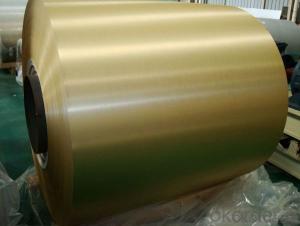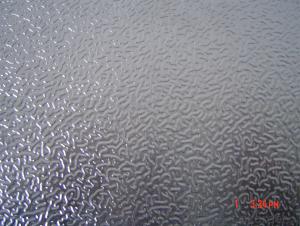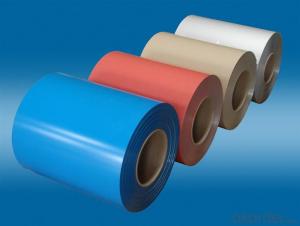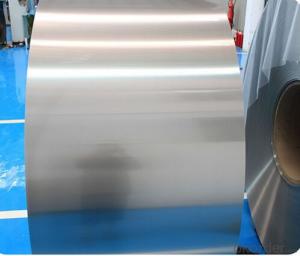Brushed Coating Aluminum Coil for Interior Wall System
- Loading Port:
- Shanghai
- Payment Terms:
- TT OR LC
- Min Order Qty:
- 5 m.t.
- Supply Capability:
- 10000 m.t./month
OKorder Service Pledge
OKorder Financial Service
You Might Also Like
Item specifice
1. Specification of Brushed Coating Aluminum Coil for Interior Wall System
characteristics | Application |
1) Super peeling strength | 1) Building exterior curtain walls |
2) Excellent surface flatness and smoothness | 2) Decoration and renovation additions for old buildings |
3) Superior weather, corrosion, pollutant resistance | 3) Decoration of interior walls, ceilings, bathrooms, kitchens and balconies |
4) Even coating, various colors | 4) Shop door decorations |
5) Fireproof, excellent heat and sound insulation | 5) Advertisement board display platforms and signboards |
6) Superior impact resistance | 6) Wallboards and ceilings for tunnels |
7) Lightweight and easy to process | 7) Industrial materials, materials for vehicles and boats |
2. Application of Brushed Coating Aluminum Coil for Interior Wall System
(1).Interior: wall cladding, ceilings, bathrooms, kitchens and balconies, shutters, doors...
(2).Exterior: wall cladding, facades, roofing, canopies, tunnels,column covers , renovations...
(3).Advertisement: display platforms, signboards, fascia, shop fronts...
3. Feature of Brushed Coating Aluminum Coil for Interior Wall System
*Such coil is specially designed to replace aluminum ingot, due to the high export tax of aluminum ingot, the coil has better price than ingot.
*This type of coil can fit customer's remelting furnace just like ingot, no need to make any change to the production line that was previously used for ingot. The standard coil size and weight is very suitable for the feed gate of furnace.
*This type of coil causes less material wastage than ingot when remelted.
*Our coil is made directly from ore, no need to go though the ingot making process, quality is much better than other suppliers who use ingot scrap to make coil.
Be free from Oil Stain, Dent, Inclusion, Scratches, Stain, Oxide Dicoloration, Breaks, Corrosion, Roll Marks, Dirt Streaks and other defect which will interfere with use
4. Certificate:
SGS and ROHS(if client request, paid by client), MTC(plant provided), Certificate of Origin(FORM A, FORM E, CO), Bureau Veritas and SGS (if client request, paid by client), CIQS certificate
5. Image of Brushed Coating Aluminum Coil for Interior Wall System
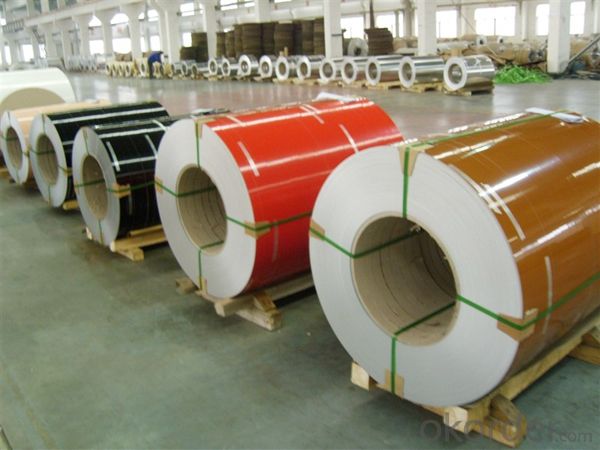
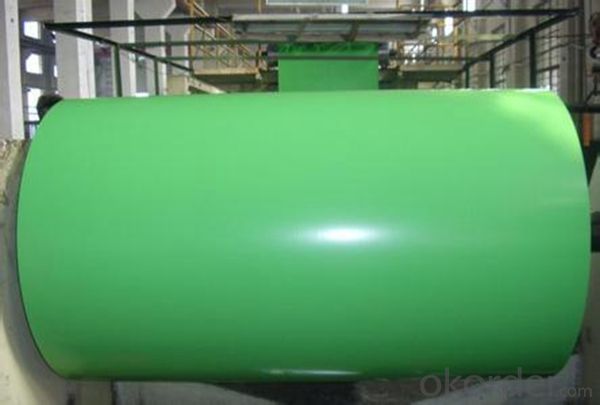
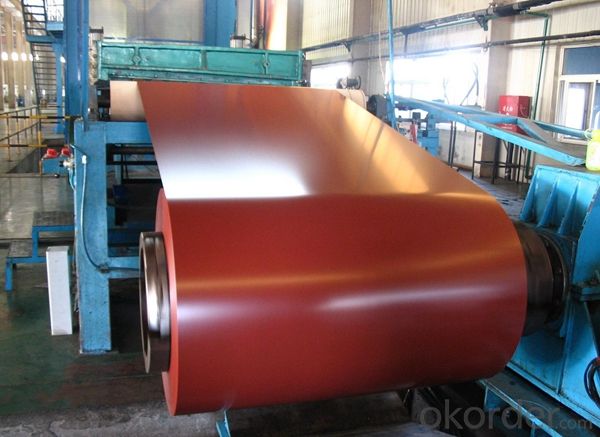
6. Package and shipping of Brushed Coating Aluminum Coil for Interior Wall System
eye to wall
eye to the wall
with wood pallet (wooded case also available)
7. FAQ
1) What is the delivery time?
Dpends on actual order, around 20 to 35 days
2)What is the QC system:
We have QC staff of 20 persons and advanced equipment, each production is with MTC traced from Aluminum ingot lot.
3) What market do you mainly sell to?
Australia, America, Asia, Middle East, Western Europe, Africa etc
- Q:How many 1220mm*2440mm aluminum sheets can one-ton aluminum coil be sliced to? Thank you.
- If it is 1.0mm thick, the coil can be sliced into 124 pieces. For other thickness, please use 124 divide the thickness.
- Q:Are aluminum coils suitable for architectural cladding?
- Architectural cladding can indeed utilize aluminum coils. Aluminum, a versatile and aesthetically pleasing material, is widely used in the construction industry due to its lightweight nature and durability. Aluminum coils can be easily shaped into various forms and sizes, making them perfect for architectural cladding applications. One of the notable advantages of using aluminum coils for cladding is their resistance to corrosion. Aluminum naturally develops a protective oxide layer, preventing rusting and deterioration over time. Consequently, aluminum proves to be a durable and low-maintenance option for architectural cladding. Moreover, aluminum coils offer a wide array of finishes and colors, providing greater design flexibility. Architects and designers can paint or coat them to match any architectural style or design concept, making aluminum coils a favored choice. Furthermore, aluminum is an environmentally friendly material. It is fully recyclable and has a significantly lower carbon footprint compared to cladding materials like steel or concrete. This makes aluminum coils a sustainable option for architectural projects. To sum up, aluminum coils are indeed suitable for architectural cladding due to their durability, corrosion resistance, design flexibility, and environmental benefits.
- Q:Can aluminum coils be painted or coated?
- Yes, aluminum coils can be painted or coated. The process involves preparing the surface, applying a primer, and then adding the desired paint or coating. This helps enhance the appearance, protect against corrosion, and improve durability.
- Q:Are aluminum coils suitable for HVAC systems?
- Yes, aluminum coils are suitable for HVAC systems. They offer several advantages such as corrosion resistance, lightweight construction, and efficient heat transfer, making them a popular choice for cooling and heating applications in HVAC systems.
- Q:How are aluminum coils tested for quality and performance?
- Aluminum coils are tested for quality and performance through various methods including visual inspections, dimensional measurements, mechanical property testing, and corrosion resistance testing. These tests help ensure that the coils meet specific standards and requirements for their intended applications.
- Q:What are the typical lead times for aluminum coil orders?
- The typical lead times for aluminum coil orders can vary depending on several factors. Generally, lead times for standard aluminum coil orders range from a few weeks to a few months. These lead times are influenced by factors such as the size and complexity of the order, the availability of raw materials, the production capacity of the supplier, and any specific customization requirements. It is important to note that lead times may be longer for larger or more specialized orders, especially if they require additional processing or finishing. Additionally, external factors such as transportation and logistics can also impact lead times. It is always recommended to communicate with the supplier directly to get an accurate estimate of the lead time for a specific aluminum coil order.
- Q:Can aluminum coils be used in architectural applications?
- Yes, aluminum coils can be used in architectural applications. Aluminum is a versatile and durable material that is commonly used in the construction industry for its lightweight nature, corrosion resistance, and ease of fabrication. Aluminum coils are often utilized in architectural applications such as roofing, cladding, and facades due to their ability to be easily formed into various shapes and sizes. Additionally, aluminum coils can be coated with different finishes to enhance their aesthetics and provide additional protection against weathering and fading. Overall, aluminum coils are a popular choice for architectural applications as they offer a combination of functionality, aesthetics, and longevity.
- Q:What are the advantages of using aluminum coils?
- Using aluminum coils in various applications offers several advantages. To begin with, aluminum coils are known for their lightweight properties, distinguishing them from materials like copper or steel. Their reduced weight makes handling and transportation easier, ultimately decreasing the overall weight of the system or product in which they are utilized. Moreover, their lightweight nature contributes to simplified installation and maintenance procedures. Additionally, aluminum coils exhibit exceptional corrosion resistance. They naturally develop a protective oxide layer on their surface, preventing further oxidation and corrosion, even in harsh environments. This quality renders them particularly suitable for outdoor applications or areas exposed to high humidity or chemicals. Furthermore, aluminum coils possess high thermal conductivity, enabling efficient heat transfer. This characteristic proves valuable in heating, ventilation, and air conditioning (HVAC) systems, as it enhances energy efficiency and reduces overall energy consumption. In addition, aluminum coils demonstrate remarkable flexibility, allowing them to be easily formed into various shapes and sizes. This flexibility grants designers greater freedom and customization options, making aluminum coils suitable for a wide range of applications. They can be effortlessly bent, cut, or shaped to meet specific requirements without compromising structural integrity. Lastly, aluminum coils are cost-effective. Aluminum is abundant and readily available, making it more affordable compared to other materials. Moreover, its lightweight nature reduces transportation costs, while its corrosion resistance eliminates the need for frequent maintenance and replacements, resulting in long-term cost savings. To summarize, the advantages of using aluminum coils encompass their lightweight properties, exceptional corrosion resistance, high thermal conductivity, flexibility, and cost-effectiveness. These characteristics have established aluminum coils as a popular choice in various industries, including construction, automotive, aerospace, and HVAC.
- Q:Which is better composite or aluminum, and what are some main differences between the two?
- There are great bats that are made out of each, but I generally tend to think that composite bats have better performance. There are aluminum bats that may be better than a given composite, but generally a high-end composite will be better than a high-end aluminum. Composites tend to have larger sweet spots, some span the entire length of the barrel, and the ball will still travel well if hit towards the outside of the sweet spot. contact hitters should look towards composites, because their slower swings will be compensated for with the spring action of the composite material. I think aluminums are better for power hitters because that material has been used for decades and the weight distribution has been better perfected for harder swings.
- Q:How can aluminium ingots be processed into aluminium coils (aluminium sheets)?
- This depends on what kind of ingot, and if it is small, it needs to be melted into a furnace, cast into a large plate, and then rolled on a mill
1. Manufacturer Overview |
|
|---|---|
| Location | |
| Year Established | |
| Annual Output Value | |
| Main Markets | |
| Company Certifications | |
2. Manufacturer Certificates |
|
|---|---|
| a) Certification Name | |
| Range | |
| Reference | |
| Validity Period | |
3. Manufacturer Capability |
|
|---|---|
| a)Trade Capacity | |
| Nearest Port | |
| Export Percentage | |
| No.of Employees in Trade Department | |
| Language Spoken: | |
| b)Factory Information | |
| Factory Size: | |
| No. of Production Lines | |
| Contract Manufacturing | |
| Product Price Range | |
Send your message to us
Brushed Coating Aluminum Coil for Interior Wall System
- Loading Port:
- Shanghai
- Payment Terms:
- TT OR LC
- Min Order Qty:
- 5 m.t.
- Supply Capability:
- 10000 m.t./month
OKorder Service Pledge
OKorder Financial Service
Similar products
New products
Hot products
Hot Searches
Related keywords
